Installing a Submersible Water Pump [27 Sep. 2023]
Installing a Submersible Water Pump
Today is Wednesday September 27. The construction site at Mbak ran out of water which was needed for the molding of it's Cornice, locally known as parapet. At the moment, the site is using it's septic tank as a reservoir. The tank is empty and will have to be filled.
Getting the needed materials |
|---|
To fill the septic tank with water we need a number of items but the table below will show the most important.:
| Item | specification |
|---|---|
| Submersible Pump | 1.5 hp |
| Generator | 3.5 KVA |
| Water host | 1.5" |
| insulation tape | ✅ |
The generator will provide the needed electrical power to drive the Submersible Water Pump. The water sucked by the pump will travel up through a plastic pipe to the surface. At the surface, the water will be channeled through a water host to the septic tank capable of holding 48,000 liters of water.
Procedures |
|---|
I will skip the collection of material, and delve into the installation process after gathering all materials.
This task needs a minimum of four hands, and six would be better but at this time, I had to accomplish the task with only two hands. And as I write this post, I feel completely worked out.
Under the scourging heat of the sun, I had to put a straw hat on my hard hat to avoid getting extra suntan. I rolled in the generator, pump, piping, host, Pipe wrench and started by opening the protective cover over the hole,
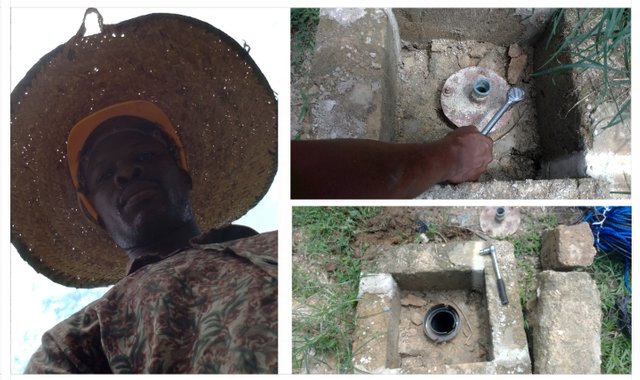
screwing in the first out of eight pipes to be attached to the Submersible Water Pump. The pipes will help channel the water up to the surface.
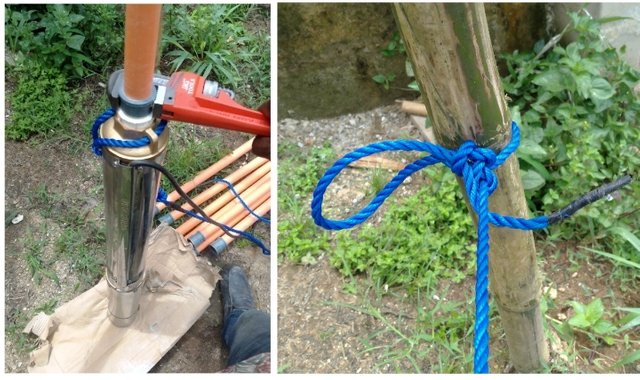
The blue rope tired to the pump is very important as it prevent the pump from getting lost in the bored hole. Just to be sure, as a precautionary measure, I had to tie the other end of this blue roap as a security. The black one is a cable, it will be used to power the pump.
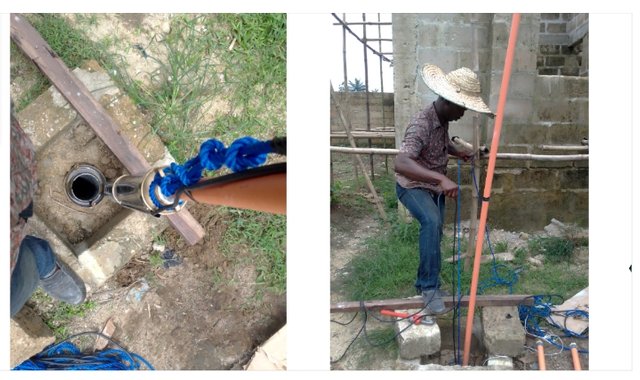
As the rope lowers the pump into this seemingly unending abyss, gravitational force pulls it down. The masking tape is used to hold the pipe, cable and rope together so they don't get tangled up inside.
Once a pipe is almost swallowed, another pipe is screwed in and the masking tape holds them at almost regular intervals, at least two points along each length of pipe.
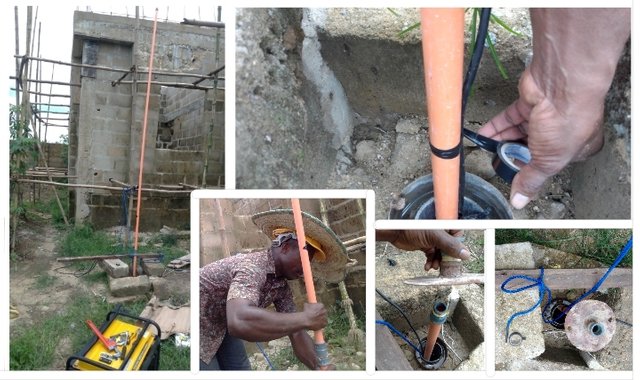
Once I was successful submerging the pump and it's pipes, it was time to secure it and connect it to the generator through it's control module.
Then the host was unwrapped and attached to the pipe, the other end was taken to the septic tank
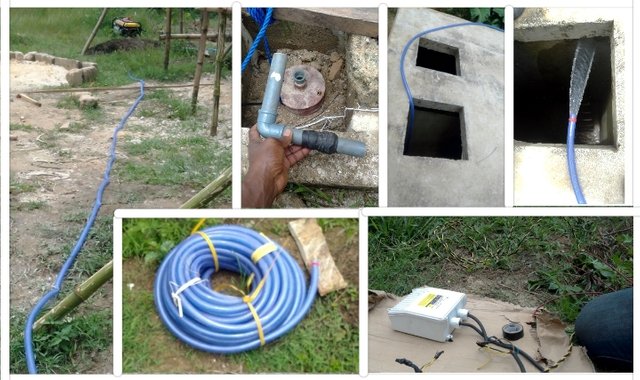
Once the generator was started, and the controll was switched on, the water was pumped into the tank. It took the first two hours then I put it off for thirty minutes and ran another two hours of pumping. We will use it for a month before having to do this again.
Precautions |
|---|
- Always make sure the pump is securely tied to something at all time. It may get swallowed in at the slightest mistakes.
- The generator produces 240 volts of electricity, so be careful. Do not get electrocuted.
- All connected wires must be properly taped with the masking tape to avoid unprotected terminals laying exposed.
- The pump becomes heavier as more pipes gets attached to it. The more you attach the pipes, the more carful you should become.
- When pulling out the pump, it gets slippery and will require more attention. The water makes the rope slippery.
- If the pump's return valve was not removed, the pump becomes six times it's weight with water in the pipes.
Conclusion |
|---|
The installation was a massive success, due to a lack of proper security, I had to remove the pump after installing and using it to pump water.
Media Credit |
|---|
| Captured with | Nokia C30 |
|---|---|
| Captured by | @manuelhooks |
| Edited with | PhotoStudio App |
| For Verification | My Achievement 1 Link |
| To view links | Use Edge or Chrome for better results |
#learnfromsteem #steemexclusive #nigeria
#club5050 #fintech
#work
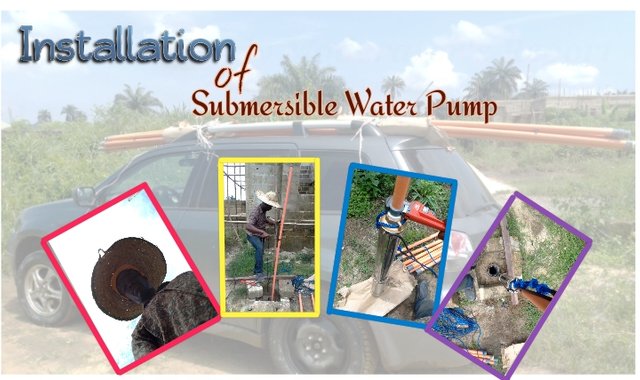
@tipu curate 2
Upvoted 👌 (Mana: 4/7) Get profit votes with @tipU :)
MODs Comment: Thanks for sharing about the Installing a Submersible Water Pump it was indeed worth learning